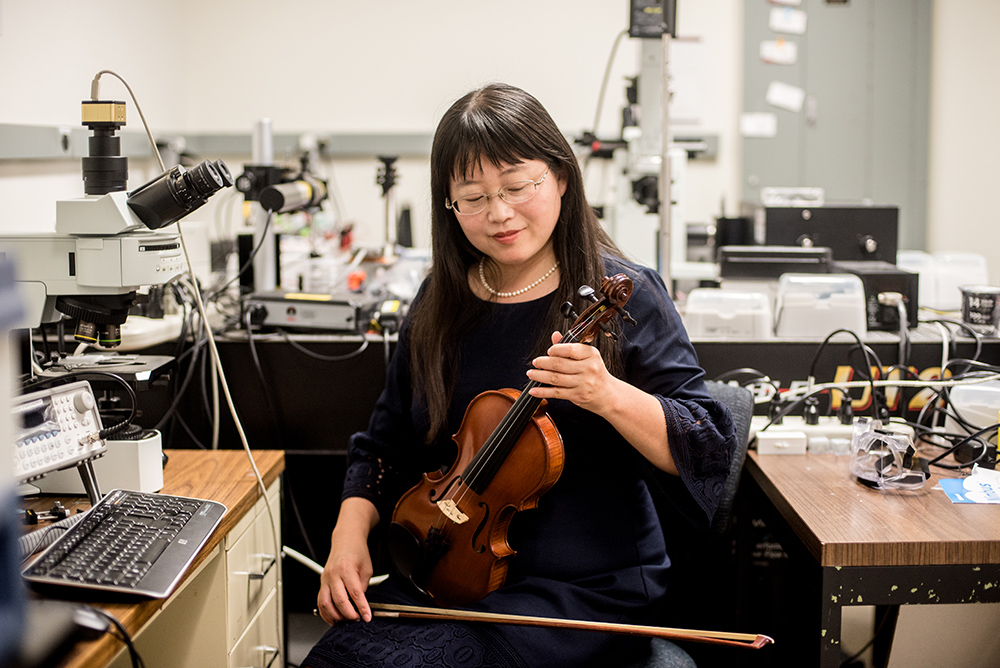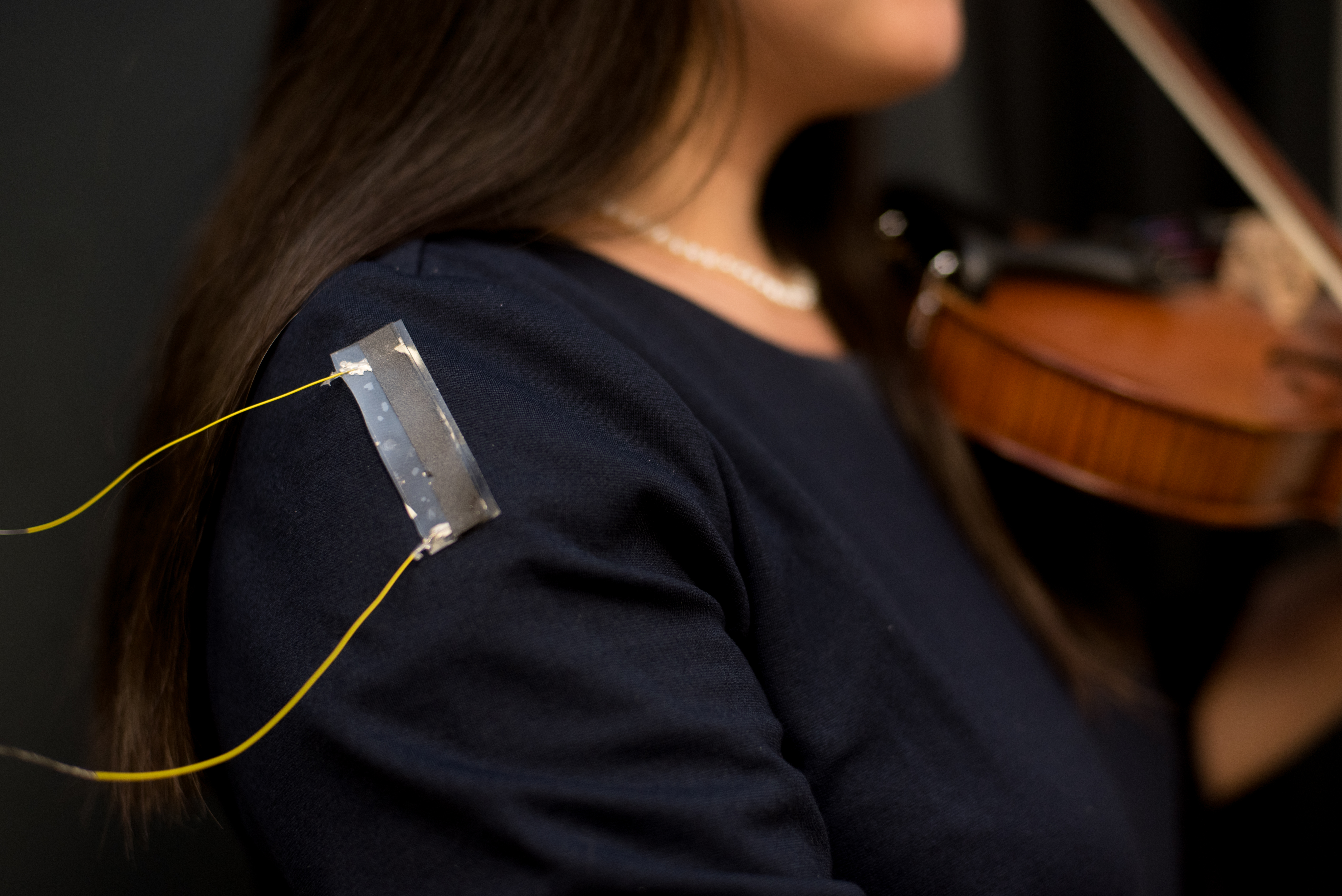Donglei “Emma” Fan takes an active role in her daughter’s violin lessons — providing endless encouragement, listening to the pitch of each note and checking her playing postures. While other proud parents may simply see an aspiring violinist, Fan, a mechanical and materials science engineer, sees an opportunity to invent a new learning tool for the next generation.

Understanding the importance of proper posture in the development of young violinists, Fan decided to reconfigure her previously developed ultrasensitive and durable 3D graphite strain sensors and apply them as a string-like wearable technology that can reduce the difficulties in musical instrument learning.
“As an engineer, I want to solve critical problems that human beings are facing, and particularly, I am interested in helping children and making their lives better. The world-renowned violin educator Shinichi Suzuki once said, ‘Perhaps it is music that will save the world,’ since it nurtures the hearts of kids and facilitates an understanding between people of different cultures,” Fan said. “If students struggle with poor posture when learning musical instruments, it can severely limit their potential to advance to higher levels and can easily cause them to lose interest.”

Her research team recently executed the first demonstration of flexible strain sensors for musical education and their results were published as the cover story on Advanced Materials Technologies. The team’s technology can detect not only the fine details of the postures of violin learners but also the body’s vital signs (pulse rate and respiration), all in real time, offering a multifaceted data set to supplement instructors’ teaching.
As an engineer, I want to solve critical problems that human beings are facing, and particularly, I am interested in helping children and making their lives better.”
Previously, significant global research efforts focused on an atomically thin material known as graphene for strain sensing. With an understanding of the properties of materials and practical needs in applications, Fan’s group decided to focus instead on graphite, a thicker material. Their decision paid off when they found that graphite produces much greater sensitivity and reproducibility in strain detection. More testing and product design is still needed, but Fan ultimately hopes to commercialize the sensors for music students and aspiring athletes, in sports like golf and baseball, where posture plays a major role in player development.
Fan is thrilled that her new sensors could one day help more children like her daughter reap the lifelong rewards of music.
“That’s exactly why I wanted to test my sensors on violin students—music education in childhood can instill kindness, hard work and a deeper understanding and enjoyment of life.” she said.